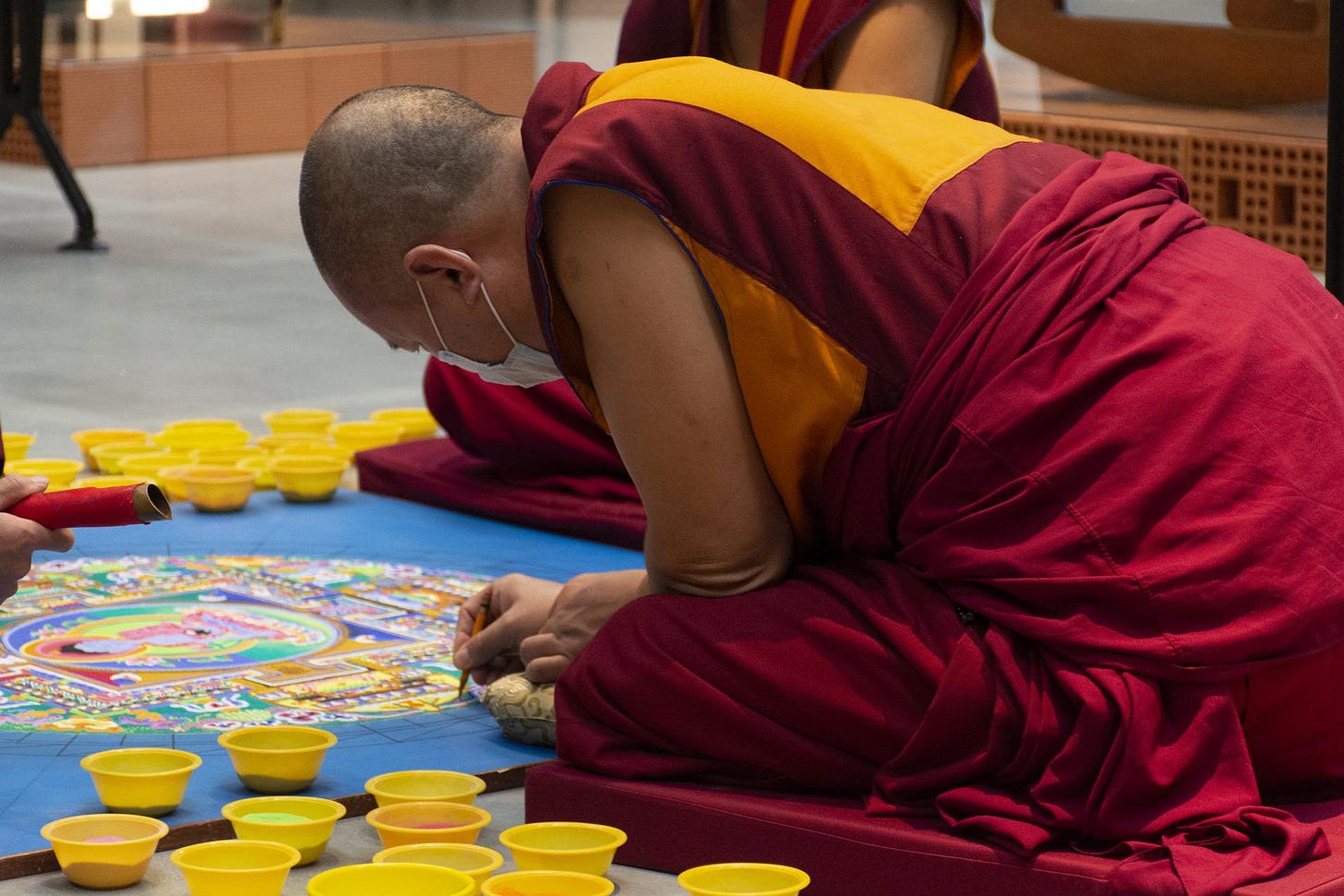I'm Dead Serious
You should really start thinking about dying.
A friend of mine was recently diagnosed with early-stage cancer. Thankfully, she has an excellent prognosis. She could easily live another 15-20 years with disease management and some luck.
I noticed that after she found out, her Facebook posts turned gloomy. Now she's updating her will and getting rid of excess at her house to ease her family's burden.
She's imagining saying goodbye.
If you've had a brush with death, you know the feeling.
I haven't had many close calls so far. I know that someday I will be making preparations like my friend.
Our Buddhist friends teach us a lot about impermanence.
The cornerstone of Buddhism is an unvarnished look at the temporary nature of all things.
Monks used to meditate on funeral grounds viewing wild animals and insects eating human corpses. It was gruesome yet efficient to hasten the understanding that the body is here only for a bit of time.
Many of us must wait years for our parents to die to see death up close. Witnessing my parents' dying process gave me perspective on what death looks like. Thanks to modern medicine, my parents didn't pass away until I was in my 50s.
Buddhists today have a more palatable ritual than sitting in funeral fields to draw us closer to death. In a meditative ceremony, four monks create an intricate mandala using multi-colored sand Depending on its size and complexity, the mandala construction can take up to two weeks.
Once completed, the mandala is consecrated with prayer.
A sanguine monk drags a paintbrush across the mandala and makes a new design with the sand. After hours of painstaking work, one brush stroke destroys the masterpiece.
The sand is then swept, collected, and dispersed into flowing water. It’s all very matter-of-fact.
Some sand is bagged and distributed to the participants to take home as a reminder.
You can watch a two-minute video here if you've never seen it.
Terminal diseases, funeral grounds, and mandalas bring us closer to understanding impermanence. What can we do now to live better, knowing everything is finite?
Can we ever gain peace of mind, knowing that every breath is one closer to our last?
The more we accept the certitude of death, the more we appreciate the time we have now.
A straightforward way is to contemplate your death through meditation.
In the words of the Buddha, "of all the footprints, that of the elephant is supreme. Similarly, of all mindfulness meditation, that on death is supreme."
Of course, it is!
It’s the last thing we want to think of, and that’s exactly why it’s imperative that we do.
Death is coming, we just don’t know when. Nothing can stop its march.
I've been *trying* to meditate on death for the past week.
It's not been easy. I notice how quickly my mind runs away from it. It’s interesting to observe how urgently I distract myself.
I’m going to try again this week.
My advice to you:
Sit with thoughts of your death for some time. Keep bringing it back to the forefront after your mind has wandered off. Don’t devote your whole meditation to it, just a short period. If you meditate for five minutes, then try it for one minute.
But wait! I'd love to know if you are a meditator. Take the survey below!


